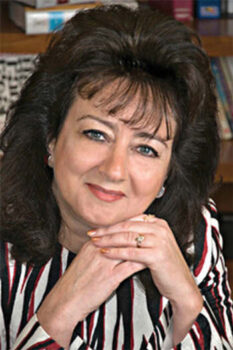
Joan M. Brown
Joan M. Brown
An unexpected finding in a group of research bunnies prompted a string of research studies on invisible factors and health. The year was 1978. Dr. Robert Nerem and his New Zealand team were conducting an experiment to correlate a high fat diet and heart disease. White rabbits were fed high fat diets followed by analyzing their blood vessels for fatty deposits. Curiously, one group of rabbits exhibited 60% less fat deposits. The baffled team eventually realized this group of rabbits were being cared for by a post-doctoral student who held them, cuddled them, and spoke to them. Thus began a string of additional research on mental wellbeing and health. Dr. Kelli Harding of Columbia University wrote a book on this topic entitled, The Rabbit Effect.
Research studies over the years have now proven love, friendship, and community have a significant impact on health and wellbeing. Conversely, loneliness, lack of purpose, and adverse childhood treatment were greater risk factors than smoking or high fat diets. In her book, Dr. Harding defined family, work, relationships, community, neighborhood, and passions as the “hidden factors of health.” These factors help us cope with stress, improve sleep, lower heart rate and blood pressure, and improve metabolism, immune function, and mental health. Multiple studies reveal similar results. The longest-running study out of Harvard reveals the No. 1 predictor of health is positive relationships.
I can attest to its positive impact in my own life. I underwent testing in Michigan for a possible heart problem due to erratic blood pressure and a high pulse rate. Results were negative. Stress was the doctor’s conclusion. We moved here in August 2021. Five months later, my new physical revealed a normal heart rate and blood pressure. I no longer feel “stressed out.”
I have been blessed with wonderful neighbors, new friends, and many new activities. I believe Robson’s concept of neighborhood units with a unit director is key to socializing new members. The day we moved in, our unit direct brought lunch, and our immediate neighbors John and Holly Hart invited us to dinner so we didn’t have to worry about cooking that night. Our very active unit director Jennie Gaines plans many social activities for us. It helped tremendously in making new friends quickly. Activities directors at Robson continually offer exciting activity options. Perhaps medical insurance companies should give discounts to members of active adult communities like Robson Quail Creek. We now have scientific proof that social support and happiness have measurable healthy impacts. Eating more veggies or putting in more steps is certainly beneficial, but medical studies reveal that we can commit many health mistakes and still live longer than average. When surrounded by good friends, kindness, and love and we reciprocate, we can live almost a decade more! It reminds me of something the Bible says, “Above all, keep fervent in your love for one another, because love covers a multitude of sins.” 1 Peter 4:8, New American Standard Bible (NASB).
Joan Brown is a member of Robson Quail Creek, Unit 22E. She worked over 40 years in the medical field. Joan holds a bachelor’s degree in theology and an associate’s degree in business administration. She is an ordained minister, author, speaker, and magazine and column writer. She has appeared on the TCT and VTN television networks.
